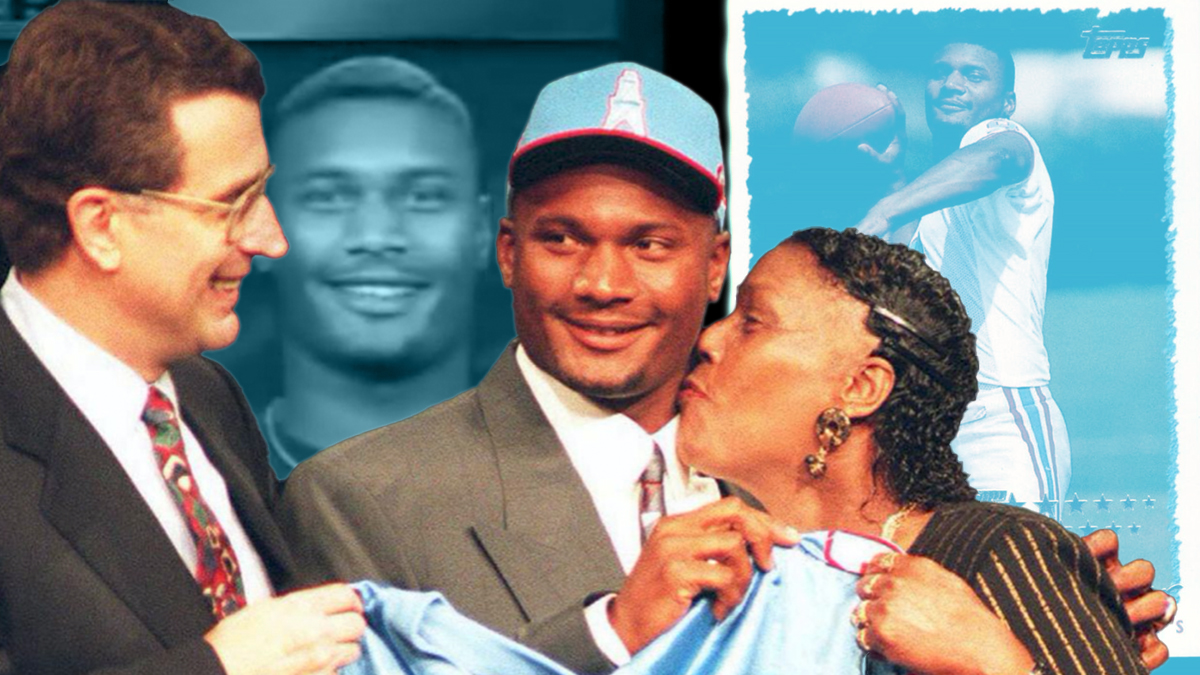
Expectations were high in Houston. New coach Jim Fisher said he planned to bring McNair along slowly despite his obvious talents.
“Steve is going to be in our eyes a franchise player, a franchise quarterback,” Fisher told the media after the draft. “He’s been the guy for quite some time. As you go through this process you evaluate the players by position. Steve has been our guy. We’ve been more convinced during the workout.”
Oilers owner Bud Adams saw his new quarterback surprising a lot of people, including his new head coach.
“I think Steve McNair is going to surprise all of you out there,” he said after the draft. “I think everyone says he’s going to need to take his time, but I think this guy is going to step in there and be a starting quarterback quicker than most people think.”
Their words, of course, would eventually come true. His first two seasons saw only mop-up duty or filling in when Chandler was hurt, making six starts during the team’s last two seasons in Houston.
His first season as a starter came in 1997 moved to Tennessee. He improved steadily over the next two seasons as the team maintained the Oilers name and colors while shaping a new identity with McNair and running back Eddie George as the faces of a new franchise: The Tennessee Titans.

And the rest, as they say, is history.
Four years after McNair’s selection, three African-American quarterbacks were selected in the first round of the 1999 NFL Draft: Akili Smith, Donovan McNabb and Dante Culpepper. Five years later, Mike Vick went number one overall.
A quarter-century later, McNair is no longer the highest-drafted black quarterback, having been surpassed by Vick in 2000. He remains, however, the highest-drafted quarterback from a historically black college to be selected in the NFL Draft.
And based on the fact that only two HBCU quarterbacks have been drafted since (FAMU’s JaJuan Seider in 2000 and Alabama State’s Tavaris Jackson in 2006), it appears he may hold on to that record for all time. In a perfect world, McNair’s success would have meant more top-flight quarterbacks would give HBCUs a chance. In the real world, McNair’s success on the college and ultimately the pro level opened a door for more players like himself to get a serious look from Power Five conference schools and become high draft choices.
These days we in the HBCU community often talk only about what McNair’s career meant for HBCUs. In truth, he opened the doors for the Cam Newtons, the Jameis Winstons, the Patrick Mahomes, the DeShaun Watsons and all the other quarterbacks who didn’t go to HBCUs. Of course, Warren Moon and Randall Cunningham were already proven veterans in the league at this point, but neither of them were first-rounders.
Both Moon and Cunningham went to PWIs, but in the end, it was a young man from Alcorn State to prove to the NFL that spending a first-round pick on an African-American quarterback wasn’t any riskier than spending one on a White one.
[postBannerAd]
